Panting in Newborn Kittens (Is It Normal or Should You Worry?)
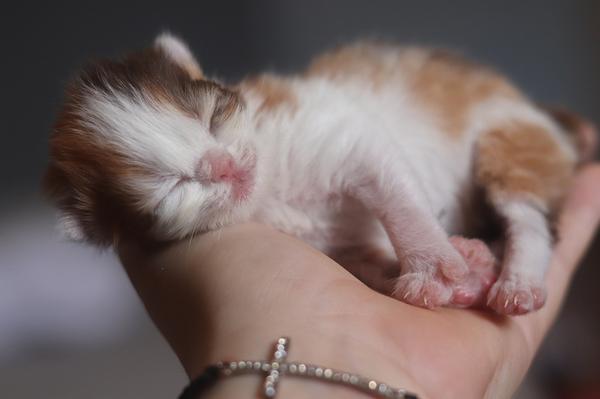
Do you feel that?
The weight of worry pressing down on your chest.
The knot in your stomach, tightening with each passing moment.
Don't you wish you had a reassurance button to ease your concerns? 🤔
Or maybe a guide that could shed light on those panting newborn kittens?
Keep reading and find out!
When to Seek Veterinary Care for Panting in Newborn Kittens
When to Seek Veterinary Care for Panting in Newborn Kittens:
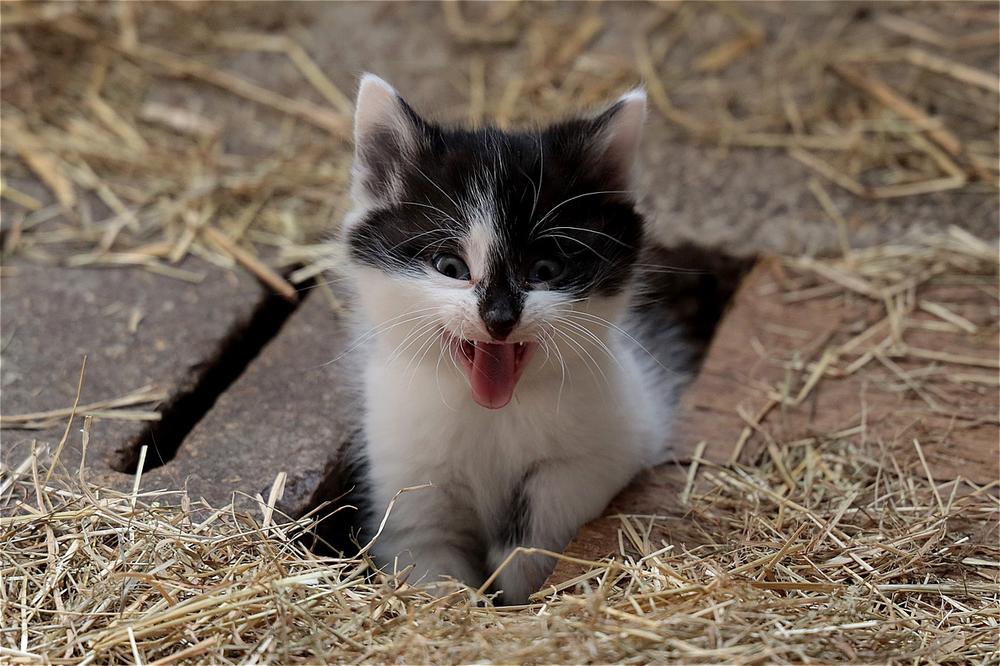
If panting in kittens is accompanied by coughing or wheezing, it may indicate a respiratory infection that requires immediate veterinary attention.
Here are some key situations where you should seek veterinary care:
- Panting during bottle-feeding - This could be a sign of an underlying health issue and requires immediate emergency veterinary care.
- Continuous panting lasting longer than two minutes - This is considered a medical emergency and has the potential to be life-threatening.
- Panting persists for more than a few seconds - If panting doesn't improve with home remedies, contacting a vet is recommended.
- Close inspection and monitoring of the kitten for other symptoms - Other health issues like heartworm or parasites may require diagnosis and treatment by a veterinarian.
- Regular checkups with a vet - This can help prevent health problems in kittens who have weak lungs and underdeveloped immune systems.
You should note that panting in newborn kittens should not be ignored as it can indicate serious conditions such as esophageal blockage, heart failure, or other potentially life-threatening diseases.
Your kittens' well-being should always be your top priority. 🐱
Main points I'll expand upon further down this article:
- Panting in newborn kittens may indicate pain, infection, overheating, or other health issues.
- Specific causes of panting include overheating, pain/discomfort, respiratory distress, heart problems, and shock.
- Dehydration can cause panting, and feeding issues should be addressed.
- Panting is characterized by open mouths, audible breathing, and signs of discomfort.
- Respiratory viruses and allergens can also cause panting in kittens.
- Maintain a clean environment to prevent respiratory issues.
- Overheating is a significant risk for newborn kittens, so provide cool areas and wet towels.
- Monitor room temperature and offer plenty of water to prevent dehydration-induced panting.
- Stress can manifest as panting in newborn kittens, create a calm environment to alleviate it.
- Distinguish between panting and hissing, and seek support from cat lover communities.
For new kitten owners, understanding the underlying causes of panting is crucial for ensuring their well-being and addressing potential health concerns...
What Does It Mean if a Newborn Kitten Is Panting?
Panting in newborn kittens may indicate pain, discomfort, or serious health issues like trouble breathing, heart problems, or shock. It could be due to overheating, dehydration, lack of care from the mother cat, or difficulties with feeding. Prompt action is crucial for their well-being.
Panting in newborn kittens might mean they're in pain or feeling uncomfortable.
Keep a close eye on them, observe their behavior, and look out for other signs of distress.
Panting is different from hissing.
So, what does it mean when these little kittens start panting?
Well, it could be a sign of serious health problems like pain, infection, overheating, trouble breathing, heart issues, or even shock.
Now, why do kittens pant, you wonder?
It could be because they feel too hot (picture being in a really warm place), they're dehydrated, not receiving proper care from their mother cat, or having difficulties with feeding.
When kittens pant, their mouths are wide open and you can actually hear their breaths – they appear extremely uncomfortable.
This isn't the same as when they're nursing, okay?
There might be various reasons why newborn kittens pant.
It could be genetic, perhaps they were born with defects.
Illnesses or environmental factors could also contribute to this, my friend.
Regardless of the cause, here's my straightforward advice:
Take action right away because we definitely want those kittens to grow up strong and healthy.
Let me break it down for you: Panting in newborn kittens can be a sign of serious health issues. But don't worry, further down the blog post, I'll provide information on how to tell if your kitten is breathing normally. Keep reading to ensure their well-being.
But what if you notice rapid belly movements while breathing in these newborn kittens?
You have to address it promptly!
Signs of Respiratory Distress in Newborn Kittens
You should recognize the signs of respiratory distress in newborn kittens.
Here are six key indicators to look out for:
- Labored breathing: Notice if the kitten appears to be breathing heavily or with great effort.
- Grunting noises: Take note if you hear unusual sounds, such as grunting or snuffling.
- Coughing or sneezing: Observe if the kitten frequently coughs or sneezes, which can indicate a respiratory issue.
- Pale or bluish gums: Check the color of the kitten's gums, as pale or bluish gums may suggest oxygen deprivation.
- Weakness or lethargy: Take notice if the kitten seems unusually tired or lacks energy.
- Difficulty nursing: Watch for any difficulties the kitten may have while trying to nurse.
If you observe any of these signs, you ought to seek immediate veterinary attention. Rapid and proper intervention can make a significant difference in the in essence health and survival rate of newborn kittens.
Please bear in mind that maintaining a clean environment free from irritants like dust and cigarette smoke can help prevent respiratory issues in kittens. Always prioritize the well-being of your furry friends by monitoring their respiratory health closely. 😺
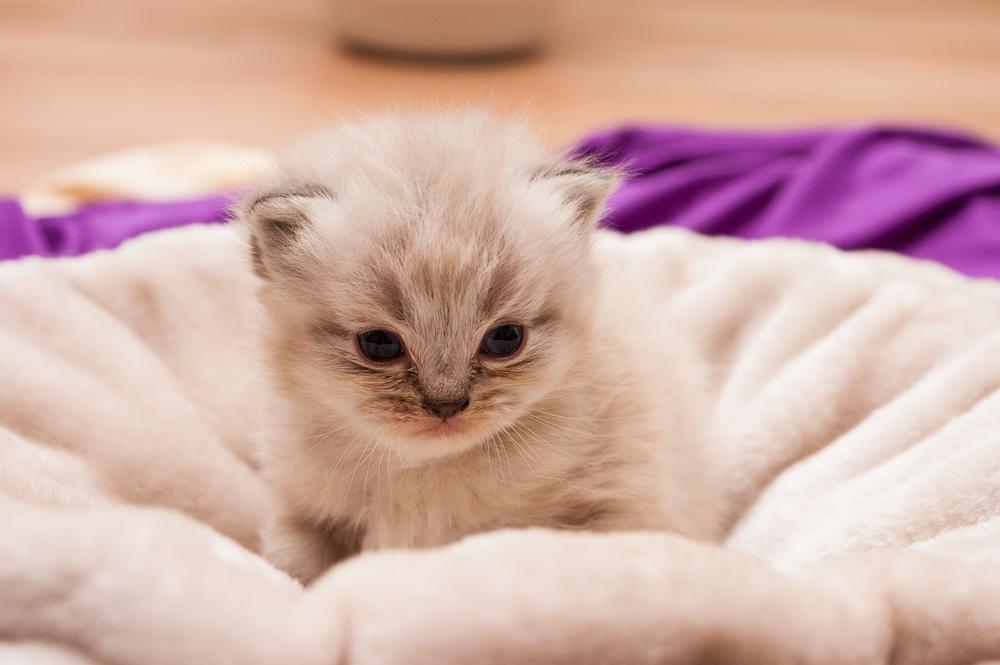
And if you're wondering why your newborn kitten is gasping for breath, I have just the answer for you.
I've written an informative article that delves into the possible causes, treatments, and advice for this concerning issue.
You can find all the details in my blog post, Why Is My Newborn Kitten Gasping.
Trust me, you won't want to miss out on this valuable resource.
So, take a moment to give it a read and put your mind at ease.
Signs of Overheating in Newborn Kittens
Here's how you can make sure your newborn kittens don't get too hot and risk serious harm:
- First, keep an eye out for signs of excessive panting and check their skin. If it feels hot and dry, things could be getting dicey.
- Give the little ones some cool spots to escape to when they start feeling the heat.
- To help them cool down, try using wet towels or cloths on their bellies or paws.
- And remember to keep water around in abundance, so they stay hydrated and avoid overheating.
- Don't forget to monitor the room temperature to make sure it's not becoming a sauna for the kittens. ⛄
- Use fans or air conditioning units to circulate air and bring that temperature down a notch.
- Offering cool surfaces to rest on can also do wonders. Consider ceramic tiles or chilled pads.
- Keep their sleeping area cooler by avoiding excessive blankets or cushions. Less is more in this case.
- Lastly, protect them from direct sunlight because it intensifies the risk of overheating.
Following these tips will go a long way in keeping your newborn kittens safe and sound, so give them a shot.
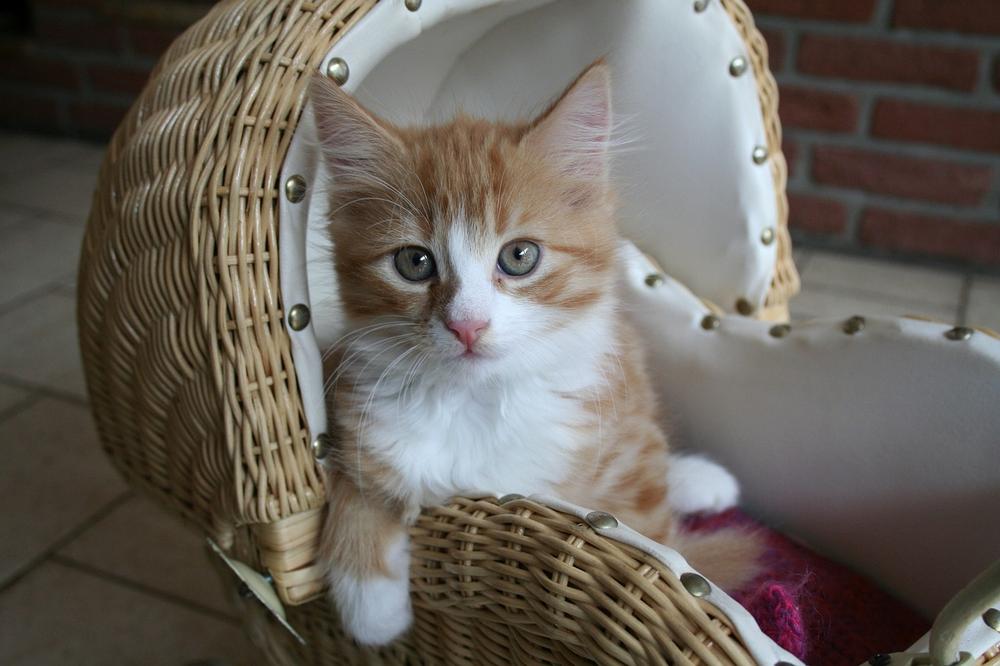
And as a caregiver, you should also be aware of the signs and effects of stress in newborn kittens.
If they exhibit increased restlessness, excessive grooming, or stress-induced panting, it may indicate that they are experiencing stress...
Signs of Stress in Newborn Kittens
To spot stress in newborn kittens, watch for these 10 signs:
- They can't sit still and keep pacing around.
- They obsessively groom themselves or do other self-soothing things.
- They start panting like they're stressed out.
- Their appetite goes downhill.
- They become weak and tired all the time.
- Out of fear, they might imitate hissing sounds.
- New scents freak them out big time.
- Their immune system gets weak.
- They become more prone to getting sick.
- They shy away from sunlight and noise.
Now, here's how you can prevent stress:
- Make sure their surroundings are calm.
- Don't overwhelm them with too much contact or disturbances.
- Limit their interaction with other pets and kids.
- If you notice any stress signs, take them to the vet.
Your newborn kittens' well-being should be top priority!
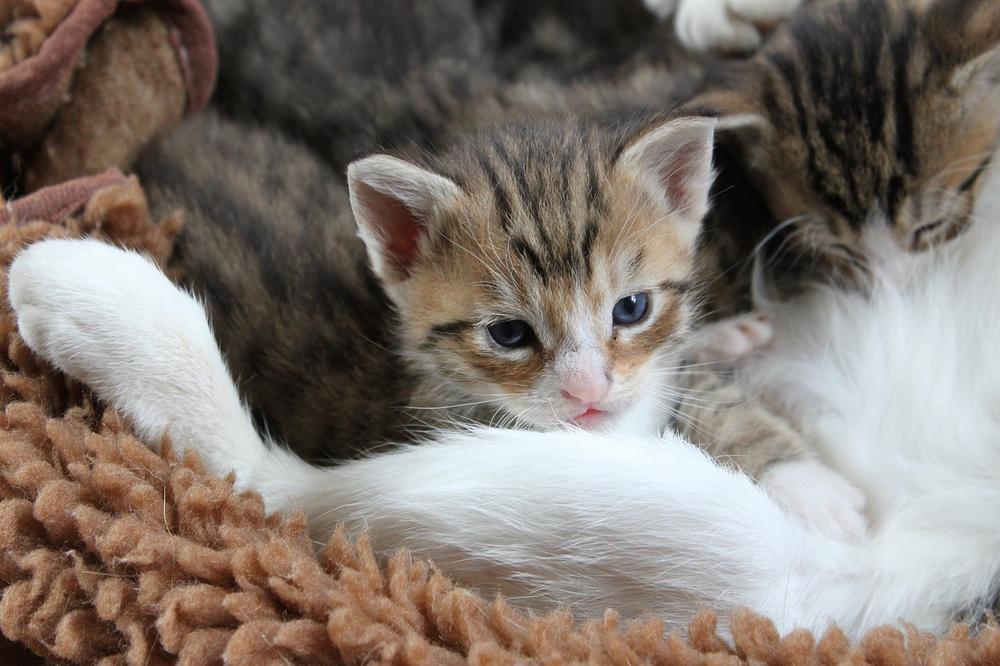
And now, let's delve deeper into understanding normal breathing patterns in newborn kittens!
How to Tell if Your Newborn Kitten Is Breathing Normally?
Newborn kittens breathe how you’d expect.
Their tiny breaths show a calm rhythm, no panting or rapid bursts.
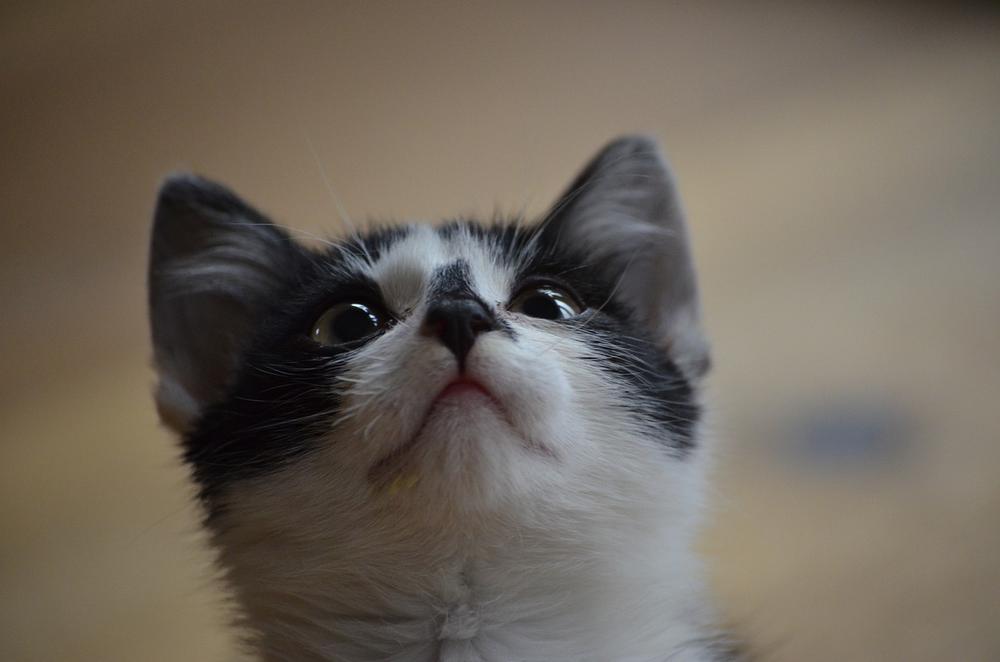
When checking your kitten’s breathing, make sure that you separate a hiss from a pant.
Panting brings shallow breaths whilst hissing is simply air released.
Breathing normally in newborn kittens involves regular, tranquil respiration. Moreover, nursing behavior is expected as they latch onto their mother, seeking milk.
Keep watch on these signs to confirm healthy breathing in your feline friend.
And that wraps up today's article.
If you wish to read more of my useful articles, I recommend you check out some of these: Do Cats Purr When They Are Sick or in Pain, Cat Vomiting After Giving Birth, Can You Vaccinate a Pregnant Cat, How to Hold a Pregnant Cat, and Pregnant Cat Breathing Fast
Talk soon,
-Sarah Davis